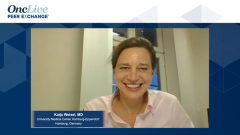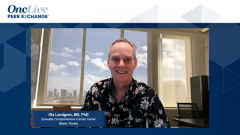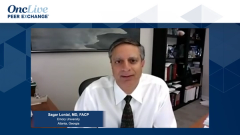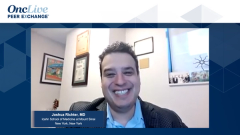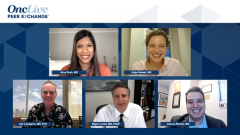
Overview of Biochemical vs Clinical Relapse in Myeloma
Katja Weisel, MD, and Joshua Richter, MD, define biochemical vs clinical relapses in multiple myeloma and share recommendations for initiating treatment at either stage.
Nina Shah, MD: This is a very common situation. People are on lenalidomide maintenance, and when they’re on lenalidomide maintenance, we’re watching them very closely. It’s not like they just go off into the yonder. We have to check their laboratory test results, sometimes monthly, because of the CBC [complete blood count], so we often detect biochemical relapse or progression either way. Katja, how do you think biochemical vs clinical relapse is defined? How do you see biochemical vs clinical relapse? Are there standard criteria for biochemical vs clinical relapse?
Katja Weisel, MD: Absolutely. The IMWG [International Myeloma Working Group] criteria give us the best guidance. We need to have 2 subsequent assessments to document progressive disease, and we have significance in the M-spike [monoclonal protein] increase and can use the free light chains, or should use them when we have an oligo circulatory disease or clear evidence of a light chain escape. I always try to be careful looking at light chains because they might also be influenced by renal function disturbance, probably during infection or other causes. We shouldn’t be injecting too early, although we have to monitor our patients closely.
However, it’s a bit of a gray area between biochemical and clinical. We often discuss how relevant biochemical relapse is for the patient. We have clear evidence from several relapse trials and the PRO [patient-reported outcomes] assessment that with a biochemical relapse, the life quality is getting impaired. We see that in the correlation, confirming what we’re seeing as treating physicians that the patient somehow feels their relapse. Carefully looking at those—the performance status, general health aspect, pain, and biochemical relapse—gives us the full picture, and we absolutely shouldn’t wait for any fracture or significant renal impairment to again use the novel or next-line therapy.
Nina Shah, MD: These are all good points. There’s this question of whether you have to repeat the studies—we do try to confirm them—and what’s really going on with the patient. I agree that the light chains can be a bit uncertain if you’re using only that as criteria. Josh, what are the recommendations for treating at biochemical vs clinical relapse? Are there any?
Joshua Richter, MD: In general, there aren’t clear guidelines. There are preferences. If somebody has a more clinical relapse, we need to give drugs immediately. Sometimes immunomodulatory agents take time to get into a patient’s hand. For example, if we’re deciding between daratumumab-carfilzomib or daratumumab-pomalidomide, I’d lean toward daratumumab-carfilzomib because I can infuse that in the clinic today. I don’t have to wait through the REMS [Risk Evaluation and Mitigation Strategy] program and the time it takes to get drug in hand. Elotuzumab is a drug that has people on 2 sides of the fence. Either they love the drug, or they don’t use the drug at all. Elotuzumab belongs in more of those patients with biochemical relapse. I’m a little less comfortable using elotuzumab in a more aggressive relapse. But outside that, it’s dealer’s choice as far as what you want to use.
Nina Shah, MD: That’s a good point. It is the dealer’s choice.
Transcript Edited for Clarity


